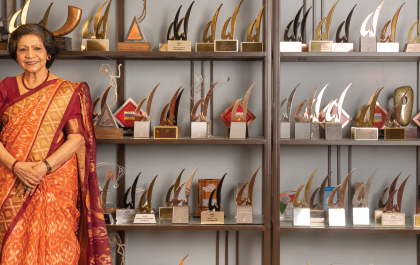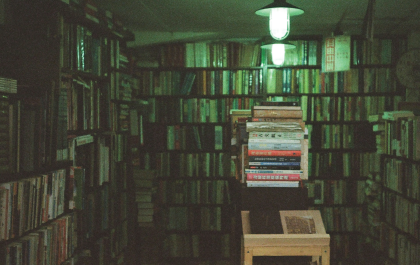Anika Chowdhury
Gazi Rakayet is a man with many talents. Armed with a degree in civil engineering, the National Award-winning director’s path could have led him towards constructing buildings – instead, he chose to build narratives on screen.
Starting as a theatre actor, Gazi Rakayet quickly distinguished himself with his versatile acting skills and profound understanding of the dramatic arts. This foundation laid the groundwork for a seamless transition into television and films, where he continued to flourish.
His directorial debut, Mrittika Maya (2012), which won 17 National Film Awards and Gor (The Grave) – Bangladesh’s first English feature film, shortlisted in the “reminder list” of productions eligible for the 94th Academy Awards – further cemented his career as a brilliant filmmaker. And recently, the acclaimed director surprised us all with his role in Raihan Rafi’s Toofan (2024), alongside Shakib Khan and Chanchal Chowdhury.

Celebrated for his relentless dedication and never-say-die attitude – which Gazi Rakayet imparts to his students – the engineer turned actor-filmmaker surely knows not only to entertain but also to enlighten.
So, what’s currently occupying Gazi Rakayet? In a detailed chat with MWB, he shares insights into his present projects and upcoming goals.
Despite having a degree in civil engineering, what inspired you to shift your career towards acting and filmmaking?
I was a developer and continued to be in this profession for almost 10 years. After that, I decided to leave it but I am still a teacher and teach classes in two reputed universities of our country.
That said, I always felt that acting and filmmaking had been my calling all along. During my student life, I was involved with cultural activities; so, for me, it was decided that I would not stay in the field of civil engineering for too long.
I pursued my engineering degree primarily to meet my family’s expectations. However, my heart was set on the creative field. I began in showbiz with modest roles, gradually building a stable career. Once I was confident in my ability to support myself and my family through acting, I fully embraced it.

From the beginning, I decided acting and filmmaking would get priority in my life, so I charted my career plan this way
What would you consider your primary profession now?
Teaching is my mainstay. I find immense fulfilment in educating the next generation, blending lessons from both engineering and the arts. This dual focus allows me to nurture a well-rounded perspective among my students, emphasizing creativity alongside technical knowledge. Acting and filmmaking are not just my passions but also integral parts of my professional life, enriching my role as an educator.
What do you enjoy the most as a teacher?
Whenever I am conducting an engineering class, I teach them about emotions – what is the fundamental role of an engineer and how emotions play a big part in it. I consider myself more of a developer of young minds, fostering their growth into intuitive and compassionate individuals. This holistic approach to education is what I cherish the most.

I always hold the profession of teaching in very high regard and I want to continue to teach as long as possible.
You’ve often spoken about your love for theatre and how your career began on stage. Can you elaborate on how your early experiences in theatre shaped your approach to both acting and story-telling on film?
When I was a university student, depression suddenly plagued my life. I faced difficulty concentrating on my studies and started to experience suicidal thoughts. I went to see a psychiatrist and she prescribed me some medicines. The medication helped … to a certain extent. But I was craving something new and creative.
Then one day, I came across a circular about an acting course at Alliance Française de Dhaka (AFD) and it changed my life. Then I gradually got involved with theatre and for me, it was like an institution, which taught not only the way of acting but also living.

I started my theatre career with Batikrom Nattyagosty and one and a half years later, I joined Nagorik Natya Sampradaya. Who wasn’t at Nagorik Natya Sampradaya? Whether it is Aly Zaker, Sara Zaker, Asaduzzaman Noor, Dr Enamul Haque, or Abul Hayat – all the prominent actors of our country were there. I believe I couldn’t have found an enriched and bigger school of acting than this.
For eight or nine years, I never got any significant role in theatre but didn’t lose heart. I was a keen observer and by observing eventually started writing.
In theatre, I was learning from the best and at the same time, I got the chance to apply theory by practising. Whenever I wasn’t acting, I was writing and consequently, I completed the script of Gor (2022).
This is where theatre is different from other institutions. In our country, most schools and even universities have become solely dependent on theory. The system cannot work like this. If we want our students to flourish, we need to let them apply the theoretical lessons they learn in classrooms practically.
I believe theatre shaped the Gazi Rakayet you now see on and off the camera. My love for theatre is a never-ending one.
What was your first role in theatre?
My very first role was that of a manservant with Batikrom Nattyagosty, which interestingly turned into a CID officer by the end of the play. It was a modest start, but I embraced every opportunity to learn and grow.

You were the right-hand man to the lead in Toofan (2024). Could you share some insights into your character?
It’s a role that came to me quite unexpectedly. I didn’t know Raihan Rafi very well before Toofan. One day, he called and asked if I would be able to meet him to discuss a role in this film and I agreed.
When we met, he said he was planning to do this film and if I would be able to play the role. Initially, he seemed quite sceptical as the role required significant physical stamina and asked if I would be comfortable doing the stunts. I said why not?
Then the shooting progressed and I travelled back and forth between Dhaka and Kolkata. I must give compliments to the director of photography (DP), who took some excellent close-up shots. Overall, I believe Toofan was able to add something new to our film industry.
Mrittika Maya (2013) was your directorial debut and garnered much acclaim. Can you share the story behind how this film came to be?
I wrote the script for Mrittika Maya in 2001 and made the film in 2012. I didn’t have enough funds to make the film. Only after receiving funding from the government, I dared to make the film. For the government’s support, I am wholeheartedly grateful. I couldn’t make this film for 12 years but the funding changed everything for me. This is how Mrittika Maya came to be and received 17 national awards.
I don’t know to what extent I am succeeding in filmmaking but I always make films to teach people
Gor (2022) is notable for being produced in both English and Bengali. What motivated you to undertake a bilingual production?
I decided Gor or The Grave to be a bilingual production because I wanted it to compete with international films, which it did at the Oscars. I always say that we don’t act with only our voice but our whole body. If I had made Gor in Bangla, and dubbed it in English, the movie would have lost its originality – the acting would have appeared superficial.
Mrittika Maya won a silver award at the SAARC Film Festival. However, what bothered me the most was when the film premiered, the audience kept looking at the subtitles instead of the film itself. I didn’t want this to happen with Gor. This was another reason why I made the film in English.
After competing with hundreds of films, Gor was shortlisted in the reminder list of productions eligible for the 94th Academy Awards, with 276 other films. Presently, Gor/The Grave is available on three US-based digital platforms – Tubi, Plex, and Amazon Prime Video.
What gives you peace of mind nowadays?
I would say teaching. I feel happy the most when I can impart something valuable – something that would teach my students to be good human beings in life. If we don’t leave behind a legacy, what would be the difference between us and other four-legged animals? So, I would like to be remembered through my teachings.
Can you tell us about any upcoming projects you are working on?
Nakphul Kabbo, a film starring Puja Cherry, Ador Azad, and myself, is scheduled to be released soon. In this film, I play the role of a painter. Apart from that, I don’t have much on my agenda except the classes I have to take.
- mwhttps://mansworldbangladesh.com/author/mw/
- mwhttps://mansworldbangladesh.com/author/mw/
- mwhttps://mansworldbangladesh.com/author/mw/
- mwhttps://mansworldbangladesh.com/author/mw/













